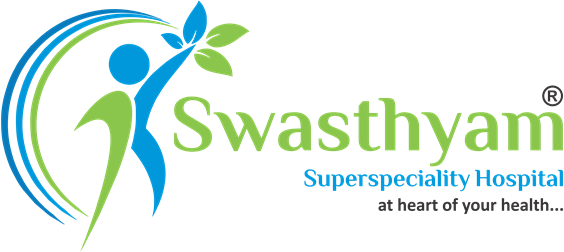What is High blood pressure (hypertension) Disease?
High blood pressure (hypertension) is a common condition in which the long-term force of the blood against your artery walls is high enough that it may eventually cause health problems, such as heart disease.
Blood pressure is determined both by the amount of blood your heart pumps and the amount of resistance to blood flow in your arteries. The more blood your heart pumps and the narrower your arteries, the higher your blood pressure. A blood pressure reading is given in millimeters of mercury (mm Hg). It has two numbers.
- Top number (systolic pressure):The first, or upper, number measures the pressure in your arteries when your heart beats.
- Bottom number (diastolic pressure): The second, or lower, number measures the pressure in your arteries between beats.
You can have high blood pressure for years without any symptoms. Uncontrolled high blood pressure increases your risk of serious health problems, including heart attack and stroke. Fortunately, high blood pressure can be easily detected. And once you know you have high blood pressure, you can work with your doctor to control it.
Symptoms
Most people with high blood pressure have no signs or symptoms, even if blood pressure readings reach dangerously high levels.
A few people with high blood pressure may have headaches, shortness of breath or nosebleeds, but these signs and symptoms aren’t specific and usually don’t occur until high blood pressure has reached a severe or life-threatening stage.
When to see a doctor
You’ll likely have your blood pressure taken as part of a routine doctor’s appointment.
Ask your doctor for a blood pressure reading at least every two years starting at age 18. If you’re age 40 or older, or you’re 18 to 39 with a high risk of high blood pressure, ask your doctor for a blood pressure reading every year.
Blood pressure generally should be checked in both arms to determine if there’s a difference. It’s important to use an appropriate-sized arm cuff.
Your doctor will likely recommend more-frequent readings if you’ve already been diagnosed with high blood pressure or have other risk factors for cardiovascular disease. Children age 3 and older will usually have blood pressure measured as a part of their yearly checkups.
Causes
There are two types of high blood pressure:
Primary (essential) hypertension
Secondary hypertension
Some people have high blood pressure caused by an underlying condition. This type of high blood pressure, called secondary hypertension, tends to appear suddenly and cause higher blood pressure than does primary hypertension. Various conditions and medications can lead to secondary hypertension, including:
- Obstructive sleep apnea
- Kidney disease
- Adrenal gland tumors
- Thyroid problems
- Certain defects you’re born with (congenital) in blood vessels
- Certain medications, such as birth control pills, cold remedies, decongestants, over-the-counter pain relievers and some prescription drugs
- Illegal drugs, such as cocaine and amphetamines
Risk Factors
High blood pressure has many risk factors, including:
- Age: The risk of high blood pressure increases as you age.
- Race: High blood pressure is particularly common among people of African heritage, often developing at an earlier age than it does in whites.
- Family history: High blood pressure tens to rudn in families.
- Being overweight or obese: The more you weigh, the more blood you need to supply oxygen and nutrients to your tissues. does the pressure on your artery walls.
- Not being physically active: People who are inactive tend to have higher heart rates.
- Using tobacco: Not only does smoking or chewing tobacco immediately raise your blood pressure temporarily, but the chemicals in tobacco can damage the lining of your artery walls.
- Too much salt (sodium) in your diet: Too much sodium in your diet can cause your body to retain fluid, which increases blood pressure.
- Too little potassium in your diet: Potassium helps balance the amount of sodium in your cells. A proper balance of potassium is critical for good heart health.
- Drinking too much alcohol: Over time, heavy drinking can damage your heart.
- Stress: High levels of stress can lead to a temporary increase in blood pressure.
- Certain chronic conditions: Certain chronic conditions also may inse your risk of high blood pressure, including kidney disease, diabcreaetes and sleep apnea.
Treatment
Changing your lifestyle can help control and manage high blood pressure. Your doctor may recommend that you make lifestyle changes including:
- Eating a heart-healthy diet with less salt
- Getting regular physical activity
- Maintaining a healthy weight or losing weight if you’re overweight or obese
- Limiting the amount of alcohol you drink
But sometimes lifestyle changes aren’t enough. If diet and exercise don’t help, your doctor may recommend medication to lower your blood pressure.
Medications
The type of medication your doctor prescribes for high blood pressure depends on your blood pressure measurements and overall health. Two or more blood pressure drugs often work better than one. Sometimes finding the most effective medication or combination of drugs is a matter of trial and error.
You should aim for a blood pressure treatment goal of less than 130/80 mm Hg if:
- You’re a healthy adult age 65 or older
- You’re a healthy adult younger than age 65 with a 10% or higher risk of developing cardiovascular disease in the next 10 years
- You have chronic kidney disease, diabetes or coronary artery disease
Consult a Specialist
Connect with expert doctors for personalized, reliable medical guidance.
